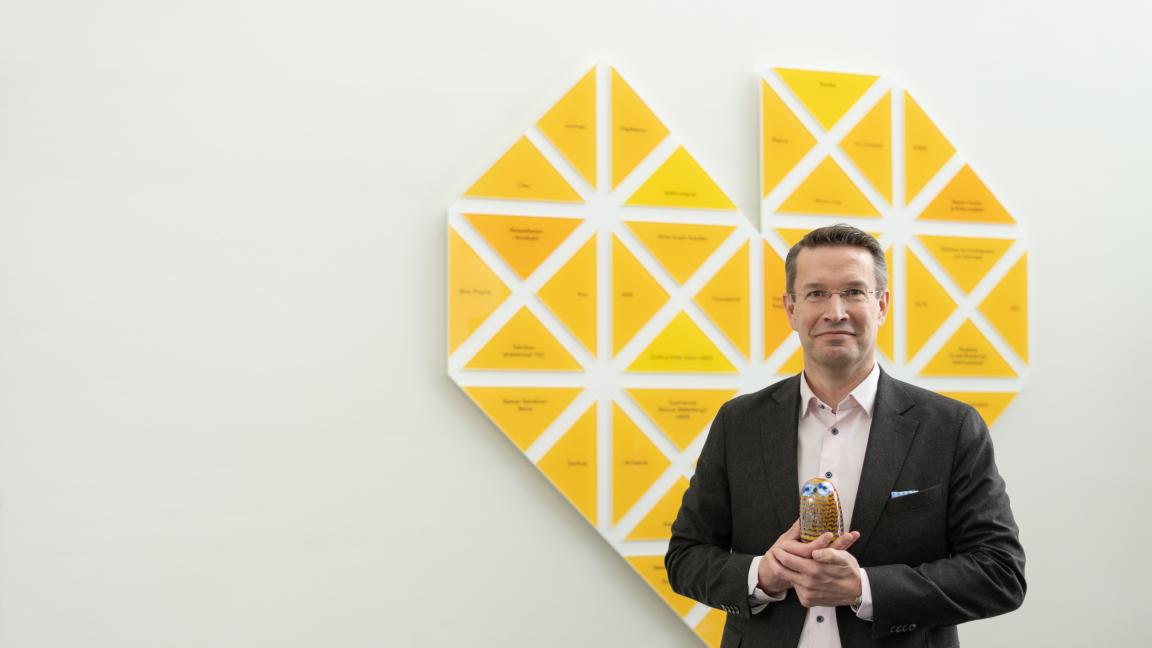According to the jury, Professor Harri Jalonen is an outstanding and versatile science communicator
– He is very active in social media as a researcher. He has also written several blogs and op-eds, been featured in traditional media, participated in podcasts and authored non-fiction books. He has also communicated to a wide range of different audiences at numerous events, seminars and panel discussions, says jury chair, Professor Merja Koskela.
Jalonen says he is very honoured to receive the award. According to Jalonen, science communication and societal dialogue are part of a researcher's work.
– Although a researcher has academic freedom, he also serves society. It is important for researchers to discuss and share their research topics and findings with different audiences, not just among other scientists," says Jalonen.
He encourages researchers to be brave in popularising science and find interesting perspectives on their own research topics.
– It is good to be brave, but you also need to consider the potential risks if the social media discussion regarding the research topic is very polarised. At their best, social media discussions can help the researcher to write clearer key messages.
People and policy makers need reliable information
The Science Communication Award highlights the importance of dialogue between academics and society and citizens' right to access research-based knowledge, according to Rector Minna Martikainen. Reliable, research-based knowledge is also needed for political and economic decision-making.
Reliable knowledge and information are the cornerstones of Professor Harri Jalonen's latest research. Jalonen is collaborating with other researchers in the IRWIN project, funded by the Academy of Finland. The project helps the policy-makers understand information resilience and situational awareness, which is of great importance to them when making decisions with a lot of dis- and misinformation available. According to Jalonen, the research project has been very successful in reaching various decision-makers.
– Together we have been able to highlight the new concept of information resilience in different contexts. There has been a social demand for this, especially due to the Covid19 pandemic and the war in Ukraine.
Researchers featured in international media
Peter Gabrielsson, Professor of International Marketing, Niranjan Sapkota, researcher of finance and Leena Kunttu, innovation researcher were awarded for their excellent science communication. They have received both national and international media coverage over the past year.
Professor Peter Gabrielsson has contributed to the international media visibility of the University of Vaasa. He was interviewed by Euronews, CNN and Reuters, among others. His interviews were related to issues concerning international brands and Russia.
Researcher Niranjan Sapkota was invited to the US to present his research on cryptocurrencies at Standard & Poor´s, together with Associate Professor Klaus Grobys. It is sometimes hard for a foreign researcher working at a Finnish university to get interviewed by the media in Finland. Sapkota succeeded well in this. Several Finnish newspapers reported on his doctoral dissertation on cryptocurrency risks.
Innovation researcher Leena Kunttu has her own regular column in the Tekniikka & Talous magazine, where she writes regularly about relevant research topics. In addition, Kunttu's research has been featured in Forbes magazine.




